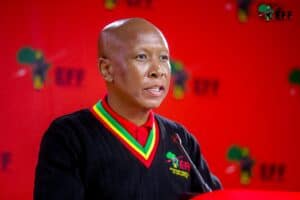Ramaphosa appointed 32 Cabinet ministers and 43 deputy ministers from different political parties who are part of the GNU.

President Cyril Ramaphosa says it was not possible to slim down his bloated executive, stating that prevailing political conditions demanded that he increase the size of the executive to accommodate members of the Government of National Unity (GNU) and ensure fair representation.
In an address to the nation on Sunday night, Ramaphosa appointed 32 Cabinet ministers, an increase from 30, and 43 deputy ministers, an increase from 36, from different political parties who are part of the GNU.
SA’s bloated cabinet
Ramaphosa said it was not possible to reduce the cabinet.
“In the course of the sixth democratic administration, we indicated our intention to reduce the number of portfolios in the National Executive. However, due to the need to ensure that the National Executive is inclusive of all the parties to the Government of National Unity, this has not been possible.
“In some instances, we have considered it necessary to separate certain portfolios to ensure that there is sufficient focus on key issues,” Ramaphosa said.
ALSO READ: Ramaphosa’s GNU cabinet: These are your new ministers and deputies
Forming GNU
Ramaphosa said he had to consider how to form the new government in a manner that advances the national interest gives due consideration to the outcome of the election and that makes use of the respective capabilities within each of the parties.
“We have had to consider not only the immediate needs of the country. We have also had to consider the stability, effectiveness and durability of the government we are establishing. It is true that some South Africans have expressed concern about the length of time it has taken to form a government.
“As the discussions have unfolded, they have been worried about the effect of a protracted process on confidence and stability, Ramaphosa said.
Effective GNU
Ramaphosa said in forming the national executive, he had to consider several factors and advance a number of key principles.
“We have had to ensure that the incoming government will be effective and that it will have people with the experience, skills and capabilities to deliver on its mandate. It is important that we deploy into positions of responsibility people who are committed, capable and hard-working, and who have integrity.
“We have had to ensure that all the parties are able to participate meaningfully in the National Executive and that the diversity of the views of South Africans is properly reflected,” Ramaphosa said.
Ramaphosa added that he also had to ensure that the national executive is representative of the people of South Africa, giving due consideration to gender, youth, demographics and regional distribution.
“We want South Africans to see themselves reflected not only in the composition of government but also in its policies and programmes.”
Ramaphosa separates and merges ministries
Ramaphosa announced that the ministries of Electricity and Energy would be merged while there would be a separate ministry of Mineral and Petroleum Resources.
He also said the Ministry of Agriculture will be separated from the Ministry of Land Reform and Rural Development.
The Ministry of Higher Education will be separated from the Ministry of Science, Technology and Innovation. The Ministry of Justice and Constitutional Development will be separated from the Ministry of Correctional Services.
“There will no longer be a Ministry of Public Enterprises. The coordination of the relevant public enterprises will be located in the Presidency during the process of implementing a new shareholder model,” Ramaphosa said.
ALSO READ: GNU marks a ‘new era of partnership and national unity’ − Ramaphosa






